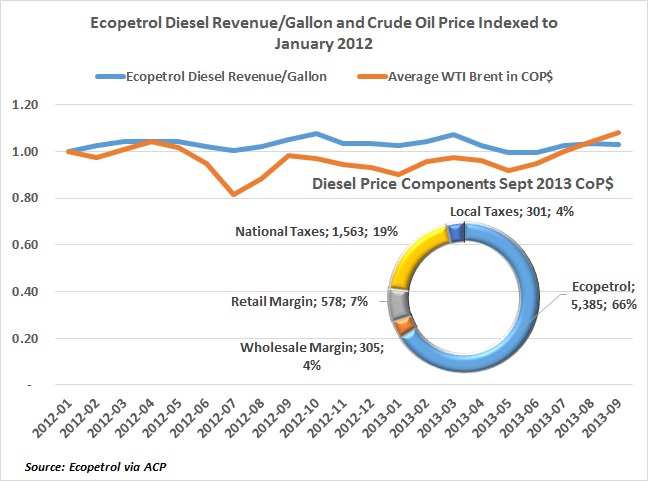MinMinas Amylkar Acosta has named Ricardo Rodríguez Yee as Vice Minister of Energy replacing Orlando Cabrales who goes back to the National Hydrocarbons Agency (ANH) replacing Germán Arce, who – as of writing – leaves the government.
Colombians might be paying at the pump, but Colombia’s Mines and Energy Minister Amylkar Acosta says the country cannot afford to put Ecopetrol’s (NYSE:EC) financial stability at risk, and that as long as crude prices remain high, gas will follow.
Colombia scored high marks for the competitiveness of its energy sector according to two international studies which also took into account access to energy and how compatible energy policies are with environmental challenges.
Opponents of the General Royalty System (SGR) got a legal victory after Colombia’s constitutional court accepted the arguments of Senator Juan Lozano that the new system is part of a centralist vision, which is prohibited by the current constitution.

UPDATED — Colombia’s Supreme Court has ruled the current pricing scheme in which the presidential administration smooths prices is unconstitutional. Instead any mechanism should fall to congress. Meanwhile the Liberal Party pushes the new mines and energy minister to study a decrease in fuel prices.
Amylkar Acosta has been named to head the Ministry of Mines and Energy (MinMinas) but just before his appointment he laid bare his views on the energy and mining boom and its consequences in a thorough interview.
In order to combat illegal fuel sales of Venezuelan fuel in Colombian territory, Venezuelan authorities have agreed to increase fuel prices and restart sales along the common border in La Guajira Department.
Luz Elena Sarmiento just got a promotion, moving from director of the National Environmental Licensing Agency (ANLA) to Colombia’s environmental minister. Here is a look at her past spent as an environmental specialist and community relations representative to the sector’s greatest powers.
In one of his last acts as mining and energy ministry, Federico Renjifo Veléz told press at the 2013 press gathering organized by natural gas association Naturgas that the government’s policy going forward will focus on liberalizing prices from the La Guajira field and building more regasification infrastructure. Will the new minister, a native from La Guajira, change this?
MinMinas announced August crude oil production was 1,031mbd, yet another record month. But the expectation on August 21st was for something much higher.